A complete list of new university faculty for the 2015-16 academic year
Blair School of Music
Ji Hye Jung, associate professor of percussion
B.M., 2007, Peabody Institute of the Johns Hopkins University
M.M., 2009, Yale University
Jung is director of the percussion program at Blair and the principal percussionist with the West Coast-based chamber music ensemble Camerata Pacifica. An advocate for new music, she has commissioned works by Kevin Puts, Alehandro Viñao, Lukas Ligeti, Paul Lansky, Jason Treuting, Michael Torke, Huang Ruo and John Serry. Jung garnered consecutive first prizes at the 2006 Linz International Marimba Competition and the 2007 Yale Gordon Concerto Competition.
College of Arts and Science
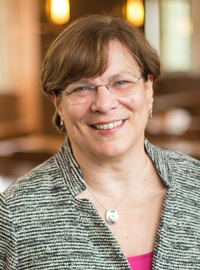
Lauren Benton, dean of the College of Arts and Science, Nelson O. Tyrone, Jr. Professor of History, professor of law
A.B., Harvard University, 1978
Ph.D., Johns Hopkins University, 1987
Benton is a pioneering comparative and world historian whose research focuses on law in European empires, the history of international law, and Atlantic world history. Her books include A Search for Sovereignty: Law and Geography in European Empires, 1400-1900 (Cambridge University Press, 2010) and Law and Colonial Cultures: Legal Regimes in World History, 1400-1900 (Cambridge University Press, 2001), which was awarded the J. Willard Hurst Prize and the World History Association Book Prize. She has co-edited two books, including most recently with Richard Ross, Legal Pluralism and Empires, 1500-1850 (New York University Press, 2013). A book currently being published by Harvard University Press and co-authored with Lisa Ford analyzes the British empire and the origins of international law in the early 19th-century world.

Anna Marie Bohmann, assistant professor mathematics
B.S., Massachusetts Institute Technology, 2005
M.A., New York University, 2006
M.S., University of Chicago, 2007
Ph.D., University of Chicago, 2011
Bohmann’s research area is algebraic topology with particular interest in stable homotopy theory and equivariant stable homotopy.
Amanda Clayton, assistant professor of political science
B.A., University of Redlands, 2007
Ph.D., University of Washington, 2014
Clayton’s research concerns political institutions, representation and public policy, with a focus on gender and politics. Using a variety of cases and methodological approaches, her current work examines how quotas for women in politics mediate the representative process. This agenda includes measuring the effects of electoral gender quotas across a range of potential outcomes, including public attitudes and behavior toward female representatives, MP plenary behavior, and policy outcomes and legislative priorities.

Simon Darroch, assistant professor of geology
B.Sc., University of Durham, United Kingdom, 2005
M.Sc., University of Tokyo, Japan, 2008
Ph.D., Yale University, 2015
Darroch uses a combination of laboratory and fieldwork approaches to research geobiological shifts in the complexity of earth-life systems. These include the evolution of complex life at the Precambrian-Cambrian boundary, the causes and consequences of past mass extinction events, and how these events can be used to build predictive models for the ongoing biodiversity crisis.
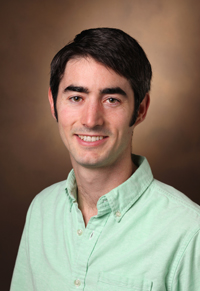
Spencer Dowdall, assistant professor mathematics
B.A., University of Michigan, 2006
M.S., University of Michigan, 2006
M.S., University of Chicago, 2007
Ph.D., University of Chicago, 2011
Dowdall’s research areas include low-dimensional and geometric topology, geometric group theory and dynamics with particular focus on Teichmüller spaces, mapping class groups, Out (FN), and dynamical properties of surface homeomorphisms and free group automorphisms.
Joseph Franklin, assistant professor of psychology
B.A., Wake Forest University, 2005
M.A., University of North Carolina-Chapel Hill, 2009
Ph.D., University of North Carolina-Chapel Hill, 2013
Franklin conducts research that focuses on the underlying mechanisms of severe psychopathology, especially nonsuicidal and suicidal self-injury. He uses multiple approaches in his research, including psychophysiological methods such as startle eyeblink and postauricular reactivity, experimental manipulations such as stress and pain inductions, and implicit measures such as affect misattribution and implicit association tests. His research program is at once clinically relevant and steeped in basic research, drawing heavily from affective science, cognitive neuroscience and social psychology.
Gili Golan, assistant professor mathematics
B.S., Bar Ilan University, Israel, 2008
M.S., Bar Ilan University, Israel, 2011
Ph.D., Bar Ilan University, Israel, student
Golan’s research interests include group theory, such as amenability; Tarski numbers of groups and group actions; and amenability of Thompson’s group F. Interests also include Ramsey theory, such as additive coloring theorems in semigroups.
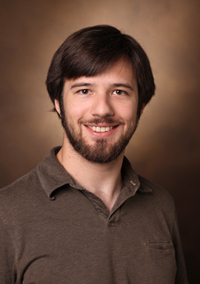
Keaton Hamm, assistant professor mathematics
B.S., Texas A&M University, 2010
Ph.D., Texas A&M University, 2015
Hamm’s research interests include approximation theory, interpolation/sampling of bandlimited functions, functional analysis, harmonic analysis and application to signal processing, and greedy algorithms.
Jessie Hock, assistant professor of English

B.A., Barnard College, Columbia University, 2005
Ph.D., University of California-Berkeley, 2015
Hock studies 16th- and 17th-century literature, poetry, aesthetics and politics, history of science, reception history, and critical theory. She speaks English, French, Italian, Spanish, German, Latin, ancient Greek and Russian.
William Holmes, assistant professor of physics and astronomy
B.S., University of Tennessee, 2005
M.A., Indiana University, 2007
Ph.D., Indiana University, 2010
Holmes uses tools from physical, mathematical and computational sciences to investigate the link between structure, organization and function in biological systems. His work falls under the umbrella of systems biology and involves the use and development of modeling tools to address an array of questions related to cellular function, embryonic development and regeneration.
Patrick Leddin, associate professor of managerial studies
B.A., Southern Illinois University, 1991
M.A., Webster University, 1998
Ph.D., University of Kentucky, 2009
Leddin is a former global management consultant and entrepreneur. His research areas of interest include organizational communication, corporate strategy, organizational change and strategic execution.
Greg Leo, assistant professor of economics
B.S., Georgia Institute of Technology, 2007
Ph.D., University of California-Santa Barbara, 2015
Leo’s research areas include mechanism design, repeated games and experimental economics.
Tara McKay, assistant professor of medicine, health and society
B.A., Occidental College, 2005
M.A., University of California-Los Angeles, 2008
Ph.D., University of California-Los Angeles, 2013
McKay’s areas of expertise include social determinants of health, health policy, gender and sexualities, HIV/AIDS, international organizations, political economy of global public health, Africa, and research methods.
Alicia L. Monroe, Mellon Assistant Professor of African American and Diaspora Studies
B.A., North Carolina Central University, 2000
M.A., University of Kansas, 2003
Ph.D., Emory University, 2014
Monroe studies the development of black religious associations and their participatory patterns in 19th-century civil society in Brazil and the larger Atlantic world. Her research chronicles how participants in these organizations configured notions of status for themselves while living in slave societies. Her work documents the African influences present in Brazilian popular religious expression and analyzes how race influenced public spatial dimensions of associative performances of faith.
Jared T. Nordman, assistant professor of biological sciences
B.Sc., University of Massachusetts-Amherst, 2002
Ph.D., Tufts University School of Medicine, 2008
Nordman’s research is focused on understanding how changes in chromatin structure and cellular differentiation affect the process of genome duplication and stability. His research uses multiple approaches, including genetics, genomics, cell biology, biochemistry and proteomics.
Maulik R. Patel, assistant professor of biological sciences
B.A., Grinnell College, 2001
Ph.D., Stanford University, 2009
Patel uses a multidisciplinary approach to study mitochondrial biology and disease through the lens of genetic conflict. Genetic conflict is classically envisioned as an evolutionarily antagonistic interaction between a host and a pathogen. Patel applies the concept of genetic conflict to study mitochondrial interactions with viruses, “selfish” mitochondrial DNA, and the nuclear genome. He employs computational methods to infer adaptive evolution and perform comparative phylogenetics. He uses genetics, cell biology, biochemistry and high-throughput genomic approaches to test these evolution-inspired hypotheses.
Rudy Rodsphon, assistant professor mathematics
M.S., Ecole Normale Supérieure de Lyon, France, 2011
Ph.D., Institut Camille Jordan, Université Lyon 1, France, 2014
Rodsphon’s research interests include noncommutative geometry, index theory, K-theory, cyclic cohomology, hypoelliptic operators and foliations.
Pedro Sant’Anna, assistant professor of economics
B.A., IBMEC-MG (Instituto Brasileiro de Mercado de Capitais), Brazil, 2009
M.A., Universidad Carlos III de Madrid, Spain, 2011
Ph.D., Universidad Carlos III de Madrid, Spain, 2015
Sant’Anna’s research areas include econometric theory, microeconometrics, applied economics, and semi- and nonparametric method.
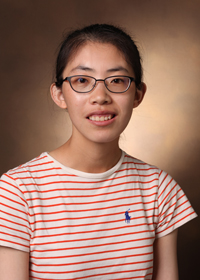
Songling Shan, assistant professor of mathematics
B.S., Northwest Normal University, China, 2008
M.S., East China Normal University, 2011
Ph.D., Georgia State University, 2015
Shan’s research interests include combinatorics and graph theory.
Jennifer Trueblood, assistant professor of psychology
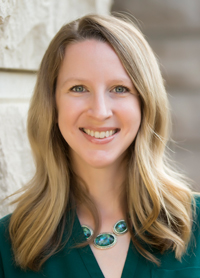
B.S.O.F., Indiana University, 2007
M.A., Indiana University, 2009
Ph.D., Indiana University, 2012
Trueblood conducts research using a joint experimental and computational modeling approach in judgment, decision-making, reasoning and memory. A primary focus of her research is the development and evaluation of probabilistic and dynamic models of decision-making in humans.
Zdravka Tzankova, associate professor of sociology
B.A., Mount Holyoke College, 1998
M.A., Brown University, 2000
Ph.D., University of California-Berkeley, 2007
Tzankova’s research interests include environmental politics, policy and regulation (U.S. and comparative, public and private). Current research focuses on the dynamics and performance of strategic approaches to policy disruption for sustainability, most notably the dynamics and potential of strategic, unusual litigation as a tool for U.S. policy and regulatory change, and the regulatory and conservation value of NGO initiatives for private, market-driven regulation of industry environmental and social performance—initiatives such as the targeting of large corporate buyers with demands for sustainable sourcing, and the exercise of market power in ways that improve environmental and social outcomes.
Maria Van der Walt, assistant professor of mathematics
B.S., Stellenbosch University, South Africa, 2009
B.S., Stellenbosch University, South Africa, 2010
M.S., Stellenbosch University, South Africa, 2012
Ph.D., University of Missouri-St. Louis, 2015
Van der Walt’s research interests are in the areas of computational harmonic analysis and spline approximation and their application.
Guojun Wang, assistant professor of Asian studies
B.A., Beijing Normal University, China, 2006
M.A., Beijing Normal University, China, 2009
Ph.D., Yale University, 2015
Wang specializes in late imperial Chinese literature with a focus on drama and theater. He is working on a book tentatively titled Sartorial Spectacle: Clothing, Identity and the State in Early Qing Drama, which examines the theatrical meaning of clothing against the dynastic transition in 17th-century China, when the Manchu rulers regulated hairstyle and dress on ethnic terms. His current research focuses on Chinese vernacular literature, book culture, gender and the social role of writing from late imperial to modern China.
Alexis S. Wells, assistant professor of religious studies
B.A., Spelman College, 2004
M. Div., Emory University, 2007
Ph.D., Emory University, 2015
A historian of African American religion, Wells explores religious exchanges and productions within the African Atlantic, colonial and antebellum Southern cultures; the religiosity of race in the United States; and women’s religious histories. She is primarily interested in religion and the body, specifically the ways modes and experiences of embodiment—such as race, gender and enslavement—have shaped religious consciousness in the U.S. American context. Wells’ current research project explores female-centered sacred cultures among enslaved Africans and African Americans in the lower South from the colonial period to the onset of the Civil War.
Isaac West, associate professor of communication studies
B.A., Kansas State University, 1999
M.A., Kansas State University, 2001
Ph.D., Indiana University, 2008
West’s research interests include interdisciplinary legal studies, queer studies, social movements and critical disability studies. His first book, Transforming Citizenships: Transgender Articulations of the Law (NYU Press, 2014), was a finalist for a Lambda Literary Award. He is currently working on a book titled We, the Persons, which examines how legal discourses about personhood (e.g. fetal personhood and corporate personhood) are circulating in politics and popular culture.
Divinity School

Choon-Leong Seow, Distinguished Professor of Hebrew Bible
B.A., Pepperdine University, 1977
M.Div., Princeton Theological Seminary, 1980
Ph.D., Harvard University, 1984
Seow’s latest book-length publication is Job 1-21, the first installment of a two-volume commentary. This book best represents the kind of scholarship he most enjoys and how he sees himself contributing to biblical scholarship. The emphasis therein on philology, the ancient Near East and theology will not come as a surprise to anyone who knows his work, particularly Ecclesiastes in the Anchor Bible series (1997). Yet the Job commentary goes beyond his earlier writings in a number of ways, most notably in its focus on poetry and especially in its incorporation of the “history of consequences.” This is the first Job commentary to draw upon Jewish, Christian and Muslim interpretations along with non-confessional engagements of Job in exegetical works as well as in literature and the visual and performing arts.
Law School
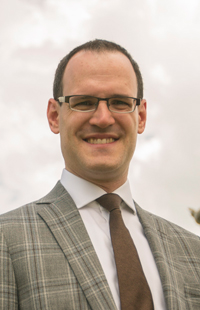
Joseph Fishman, assistant professor of law
A.B., Harvard University, 2005
M.Phil., University of Cambridge, England, 2006
J.D., Harvard University, 2009
Fishman focuses on intellectual property and its relationship to creativity and the creative process. His most recent work, “Creating Around Copyright,” published in the Harvard Law Review, examines the underappreciated upside of copyright restrictions for stimulating creativity among those who need to work around them. Fishman was previously a Climenko Fellow and lecturer in law at Harvard Law School and practiced law at Jenner & Block. After law school, he clerked for Judge Jeffrey R. Howard of the U.S. Court of Appeals for the First Circuit and Judge Miriam Goldman Cedarbaum of the U.S. District Court for the Southern District of New York.
Timothy Meyer, professor of law
B.A., Stanford University, 2003
M.A., Stanford University, 2003
J.D., University of California-Berkeley, 2006
Ph.D., University of California-Berkeley, 2008
Meyer focuses on international economic and environmental law. His current research examines the interaction of international and local rules on energy subsidies, the role of science in international lawmaking, the relationship between international energy institutions and climate change institutions, and the creation of nonbinding “soft law” obligations. Meyer previously taught at the University of Georgia School of Law. Before entering the legal academy, he represented the United States in commercial arbitrations as an attorney with the State Department. He previously held a Public Policy and Nuclear Threats Fellowship from the Institute on Global Conflict and Cooperation at the University of California-Berkeley. After law school, he clerked for Judge Neil M. Gorsuch of the 10th Circuit Court of Appeals.
Owen Graduate School of Management
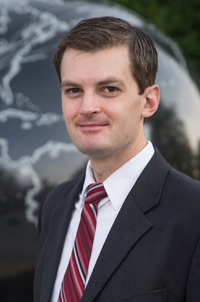
Ben Munyan, assistant professor of management
B.S., Arizona State University, 2009
Ph.D., University of Maryland, 2015
Munyan’s research interests include financial intermediation, banking and shadow banking, government regulation, and fixed income markets. His job market paper “Regulatory Arbitrage in Repo Markets,” which shows non-U.S. bank dealers manage their repurchase agreement activity to window dress performance, was a finalist for the Arthur Warga Award for Best Paper in Fixed Income at the 2015 Society for Financial Studies Cavalcade conference. He is also the recipient of the Smith School’s Frank T. Paine Award for Academic Achievement. During graduate school, Munyan worked at the U.S. Treasury Office of Financial Research, where he helped analyze money market funds and fixed income markets.
Peabody College of education and human development
Ashley Carse, assistant professor of human and organizational development
B.B.A., University of Georgia, 1999
M.A., School for International Training, Vermont, 2005
Ph.D., University of North Carolina-Chapel Hill, 2011
Carse, a cultural anthropologist, uses ethnographic and historical methods to study environmental management, international development, global transportation networks and the social dimensions of infrastructure projects. He is particularly interested in water management and politics. Carse has conducted research in both Latin America (Panama, Ecuador) and the United States (North Carolina). Before coming to Vanderbilt, he was a National Science Foundation Postdoctoral Fellow in Science, Technology and Society at the University of Virginia. The MIT Press published his first book, Beyond the Big Ditch: Politics, Ecology and Infrastructure at the Panama Canal, in 2014.
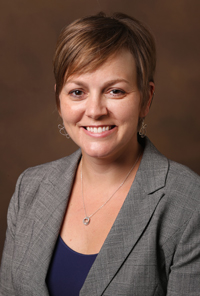
Teresa Dunleavy, assistant professor of the practice of mathematics, Department of Teaching and Learning
B.A., Lawrence University, 2000
M.A.T., Duke University, 2002
Ph.D., University of Washington, 2013
Dunleavy comes from San Diego, where she served as a faculty associate at San Diego State University and adjunct assistant professor at the University of San Diego. Her research interests include analyzing equitable mathematics teaching practices and understanding students’ perspectives on their mathematics learning.
Anjali J. Forber-Pratt, assistant professor of human and organizational development
B.S., University of Illinois at Urbana-Champaign, 2006
M.A., University of Illinois at Urbana-Champaign, 2007
Ph.D., University of Illinois at Urbana-Champaign, 2012
Forber-Pratt’s research agenda adopts a social-ecological framework and looks at issues surrounding identity, equity and empowerment through qualitative methodology for individuals who are different in some way, with a large focus on disability. Outside of the academy, she was a member of Team USA at the 2008 and 2012 Paralympic Games. She is actively involved nationally and internationally with disability advocacy efforts related to access to education, employment and sport through public speaking and media appearances. Her research areas include disability, social justice and empowerment, school safety, role of sport, bullying and victimization, community and school counseling, identity development, and qualitative research methods.
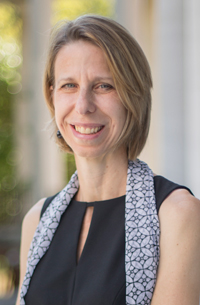
Carolyn J. Heinrich, professor of public policy and education, professor of economics
B.A., Beloit College, 1989
M.A., University of Chicago, 1991
Ph.D., University of Chicago, 1995
Heinrich’s research focuses on education, workforce development, social welfare policy, program evaluation, and public management and performance management. She works directly with federal, state and local governments in her research to improve policy design and program effectiveness and also collaborates with nongovernmental organizations (such as the World Bank, UNICEF and others) to improve the impacts of economic and social investments in middle-income and developing countries. She received the David N. Kershaw Award for distinguished contributions to the field of public policy analysis and management in 2004 and was elected to the National Academy of Public Administration in 2011.
Ana Christina da Silva Iddings, professor of the practice of education in elective learning
B.A., California State Polytechnic University, 1991
M.A., University of Nevada, 1996
Ph.D., University of Nevada, 2001
Iddings’ research centers at the learning ecologies of linguistically/culturally diverse students; family and community resources in diverse urban in- and out-of-school contexts; and partnerships between family, community, school and university that support the literacy learning of linguistically diverse learners and emphasize educational opportunity and equity. She has taught in public schools in Brazil and the United States and has worked with researchers in Chile, Brazil and Mexico on implementing ecological models of community development.
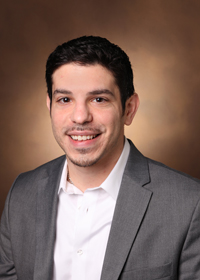
Jonathan Lane, assistant professor of psychology and human development
B.A., Florida International University, 2005
M.A., University of Michigan, 2008
Ph.D., University of Michigan, 2011
Lane’s research examines developmental predictors of children’s theory of mind; social-cognitive consequences of theory of mind development; and the flexibility of children’s theory of mind as evidenced in their understanding of nonhuman minds. Additional research interests include how children mentally represent and come to believe ideas that defy their intuitions or firsthand perceptions. Recent awards include a National Research Service Award from the National Institute of Child Health and Human Development.
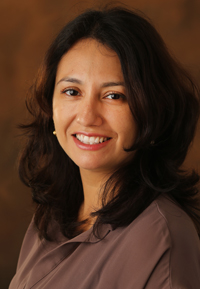
Jeannette Mancilla-Martinez, associate professor of literacy instruction
B.A., Mount Saint Mary’s College, 2000
Ed.M., Harvard University, 2004
Ed.D., Harvard University, 2009
Before coming to Peabody, Mancilla-Martinez served as assistant professor of language, literacy and technology at the University of California-Irvine. Her areas of specialization include language and reading development, child development, and language of minority learners, immigrant children and students from low-income homes.
Sara Safransky, assistant professor of human and organizational development
B.A., Hampshire College, 1999
M.A., University of North Carolina-Chapel Hill, 2008
Ph.D., University of North Carolina-Chapel Hill, 2015
Safransky is broadly trained in human geography and urban planning, with research and teaching interests in urban studies, political ecology, critical race studies, social movements and participatory research. She is currently working on two book projects. Drawing on 17 months of ethnographic fieldwork, the first explores the racial and environmental politics involved in redeveloping Detroit, where 150,000 lots lie “vacant” after decades of industrial decline, white flight and poverty. The second book is the outcome of a participatory research project and is an edited collection called Detroit: A People’s Atlas. It includes maps, essays, poetry, interviews and oral histories offering an account of changes underway in Detroit from residents’ perspectives.
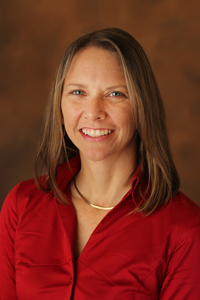
Jeanne Wanzek, associate professor of special education
B.S., Northern Illinois University, 1995
M.S., Northern Illinois University, 2000
Ph.D., University of Texas-Austin, 2005
Wanzek conducts research examining effective reading instruction and intervention. Her focus is on prevention and remediation for students with reading difficulties and disabilities. Prior to receiving her doctorate, she worked as a special educator and as an elementary teacher. She has a number of publications as well as national and international presentations in the areas of early reading, learning disability and adolescent reading intervention.
School of Engineering
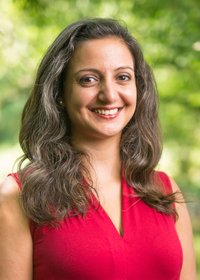
Hiba Baroud, assistant professor of civil and environmental engineering
B.S., Notre Dame University, Lebanon, 2009
M.A., University of Waterloo, Canada, 2011
Ph.D., University of Oklahoma, 2015
Baroud’s research interests are in risk and resilience analysis of critical infrastructure systems in applications including energy, transportation and the environment. She has studied data-driven Bayesian methods to predict the occurrence of disruptive events, such as natural disasters, and stochastically model the recovery process of the physically disrupted system as well as other interdependent and indirectly impacted systems. She developed decision analysis tools to assess different preparedness, recovery and resource allocation investment strategies for the protection of civil infrastructures.
Shihong Lin, assistant professor of civil and environmental engineering
B.S., Harbin Institute of Technology, China, 2006
Ph.D., Duke University, 2012
The overarching research theme in Lin’s lab is environmental technology to address societal challenges at the water-energy nexus, which includes improving the energy efficiency of water treatment, mitigating the environmental impact of wastewater generated from energy production, and harnessing sustainable energy from water salinity gradients. Specifically, his group studies membrane processes for desalination, environmental application of nanotechnology, and environmental interfacial phenomena.
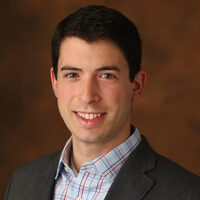
Ethan S. Lippmann, assistant professor of chemical and biomolecular engineering
B.S., University of Illinois at Urbana-Champaign, 2006
Ph.D., University of Wisconsin-Madison, 2012
Lippmann’s research group operates at the intersection of engineering and regenerative medicine with the goal of understanding neurovascular diseases (e.g. disorders that afflict the central nervous system and its surrounding blood vessels) and designing rational therapeutic strategies to combat their progression. His efforts are currently focused on constructing representative tissue models using human pluripotent stem cells, understanding disease mechanisms using genetic engineering approaches, and generating novel affinity reagents to study drug transport, improve drug delivery and directly regulate cell behavior.